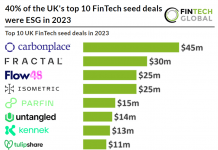A quarter of UK consumers that had a declined payment in the past 12 months have no idea why it happened, according to research from global PayTech Trustly.
The company, which offers digital account-to-account transactions, has released a report into frustrations in the digital payments space.
Its findings state a third of respondents theyd give up on a purchase if it was declined just once. While declines are often believed to be caused by a lack of funds, the report states on 23% of declined funds are caused because of this.
The biggest frustration people have with online payments, however, is trying to remember their passwords, with 37% of people stating this. The other major bugbears were inputting card details (33%) and the number of security steps needed to complete a payment (25%).
Speed is also crucial in keeping customers happy. The survey found that over two in five people would wait a maximum of two or three minutes in an online checkout process. Furthermore, 28% would only be willing to wait between 30 seconds and one minute.
Trustly VP of ecommerce & financial services Ciaran OMalley said, ?It incredibly disruptive – and often panic-inducing – when we see our card payments declined. And this is compounded when we dont know why our payment cant be processed.
?This is one of the reasons we recently launched Trustly Express – which reduces the number of steps at the checkout for returning customers – to enable merchants to significantly improve the payment experience for their end users, driving increased conversion and customer loyalty.p>
These findings were part of Trustly 2022 Consumer Reporter.
In other payments trends, a report from Juniper Research claimed global spend through QR code payments could exceed $3trn by 2025, rising from $2.4trn in 2022.
Copyright ? 2022 FinTech Global











